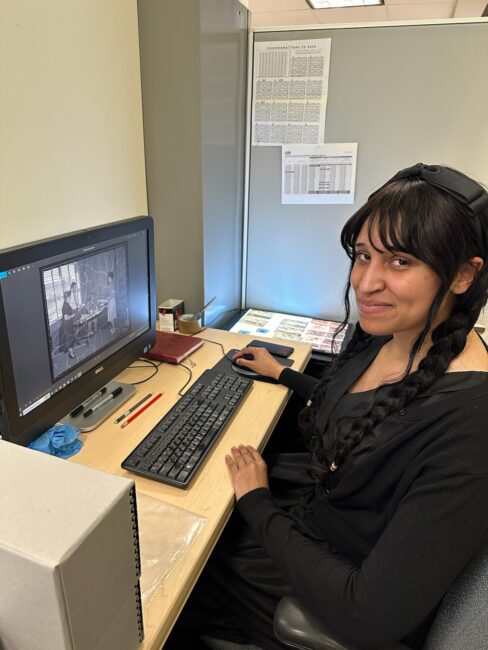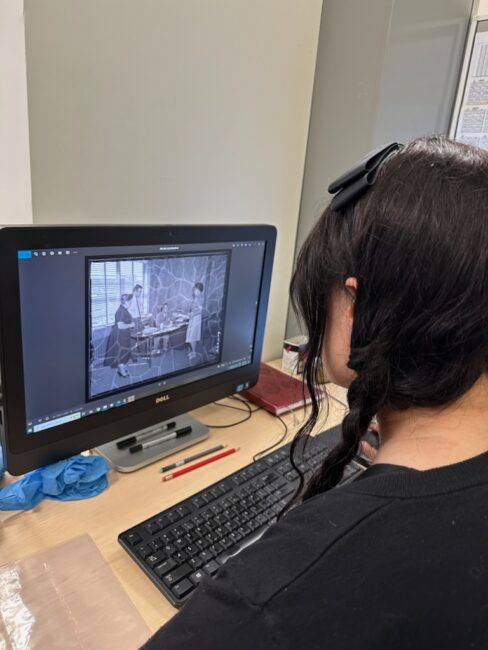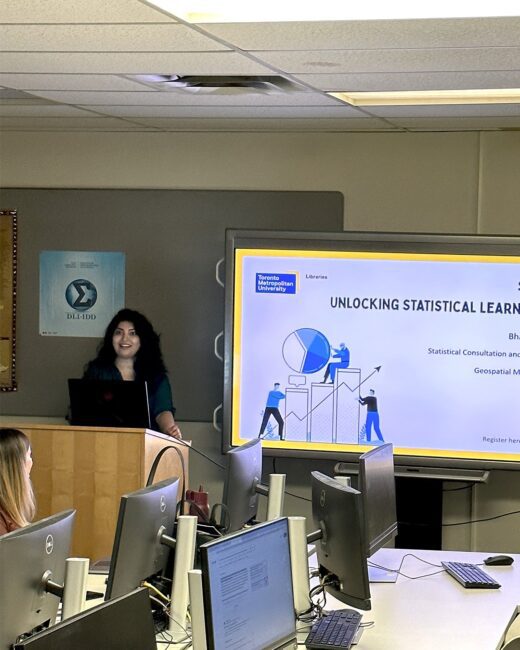
Feel like you’re drowning in data and not sure what to do with it? The journey from finding data to making sense of it can be challenging.
That’s where TMU Libraries’ Statistical Consultation and Learning Service (SCLS) comes in. Led by Data Librarian Kevin Manuel and Statistical Support Specialist Bhaswati Mazumder, the SCLS was recently honored with a travel award from the Alfred P. Sloan Foundation. The award recognizes their 50th Annual IASSIST data conference presentation, “Enhancing Research Support through Collaboration: The Impact of the Statistical Support Specialist at TMU,” which showcases how the SCLS is helping bridge the gap between data retrieval and analysis.
Offered through the Libraries’ Geospatial Map and Data Centre (GMDC), the SCLS helps researchers understand and make sense of their data and statistical information. While libraries have always provided expertise in locating and retrieving information, SCLS now ensures there’s additional guidance analyzing and interpreting data effectively.
“TMU Libraries has long recognized a need for statistical support based on requests from our patrons wanting to analyze data that the Libraries provides,” says Manuel. “The addition of the service and a Statistical Support Specialist has allowed the GMDC to offer a full complement of data discovery plus statistical analysis assistance.”
The SCLS provides in-class instruction and hands-on support for graduate students and faculty. And, while the service supports all researchers, it offers additional support for anyone from non-quantitative backgrounds working on data-intensive projects for the first time. The service aims to make quantitative research accessible and less intimidating.
The award, from the Alfred P. Sloan Foundation, is a nod to these data consulting initiatives that help to advance scholarly conversations, collaborations and understanding on and of data and statistical science.
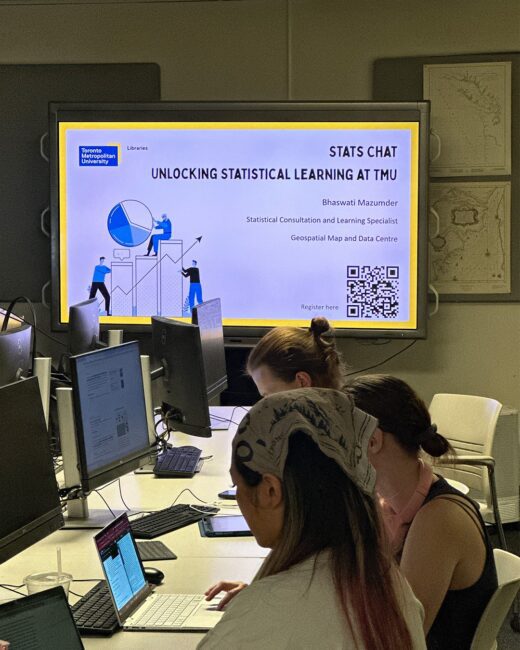
As the 2025 term begins, the SLCS is introducing new programming that adds to their outreach and teaching efforts. Since the field of quantitative research is always evolving, to ensure the Libraries’ keep pace, the Service is launching Stats Chat, a weekly workshop series starting this fall.
Stats Chat is a drop-in workshop series that offers learning sessions on a variety of data and statistical topics every Thursday afternoon. “These sessions are designed to strengthen the TMU community’s data and statistical literacy,” says Mazumder. “My goal with the weekly Stats Chat is to create an open dialogue that helps participants discover the learning approaches and tools best suited to their individual needs.”
Through guest talks, class visits, and faculty consultation, SLCS is also actively exploring how to incorporate new instructional materials to make learning statistics and data analysis more effective.
“How we analyze data is constantly evolving—SCLS is here to connect researchers with the tools and resources to grow with it,” says Mazumder. By bridging the gap between data retrieval and analysis, the SCLS is empowering researchers to better understand and present their data.
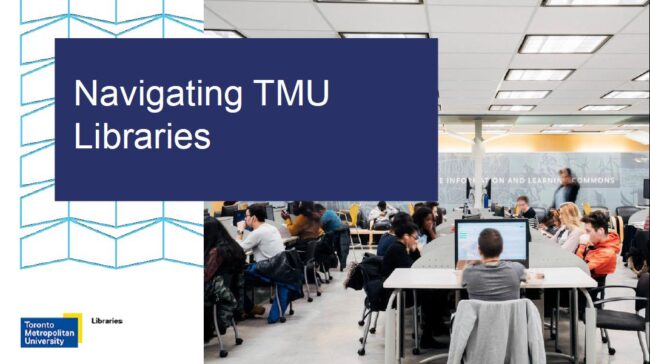
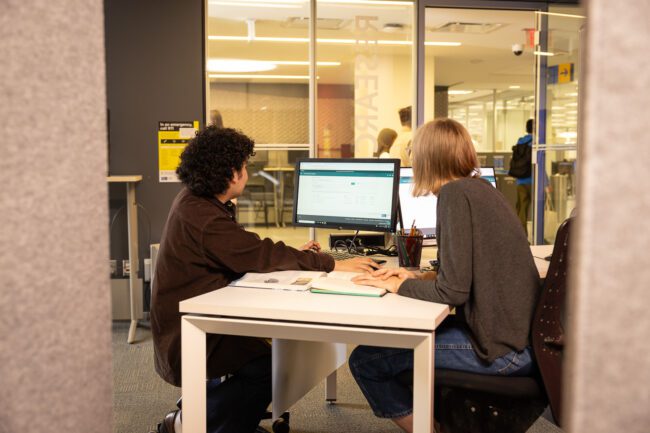
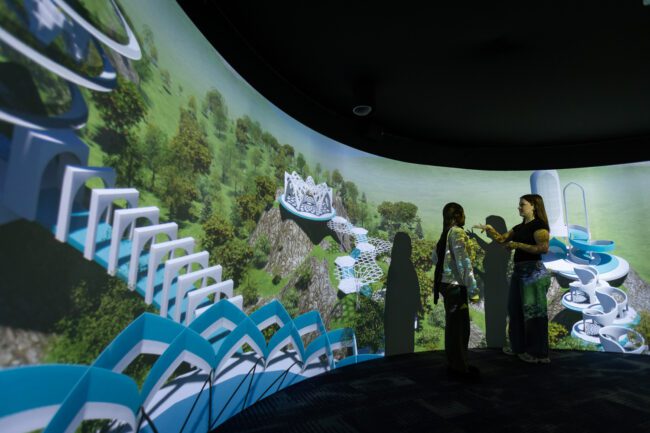 If you’re interested in creating an immersive experience for a project the Libraries’
If you’re interested in creating an immersive experience for a project the Libraries’ 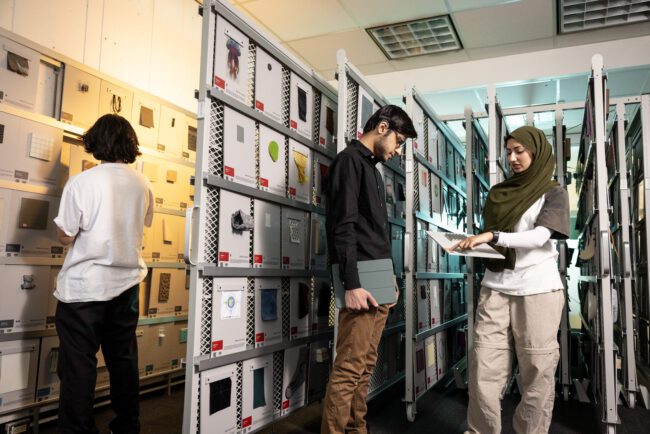 Material ConneXion
Material ConneXion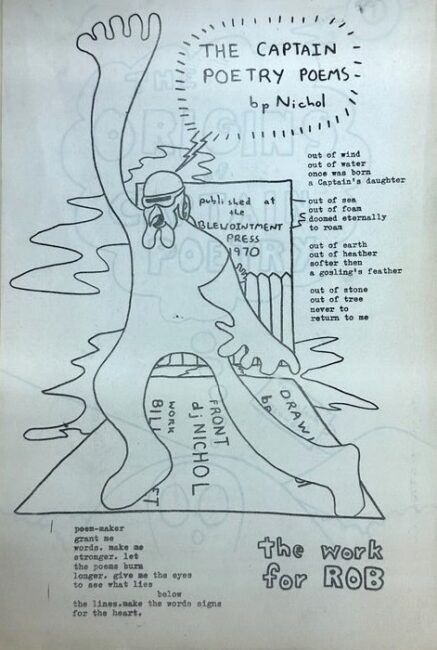
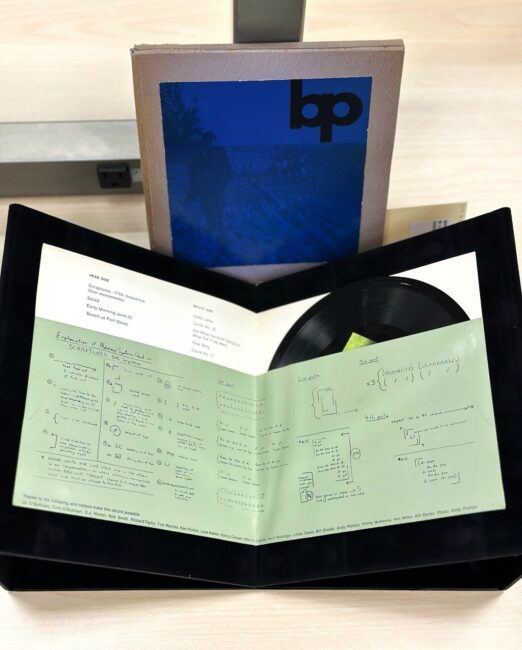
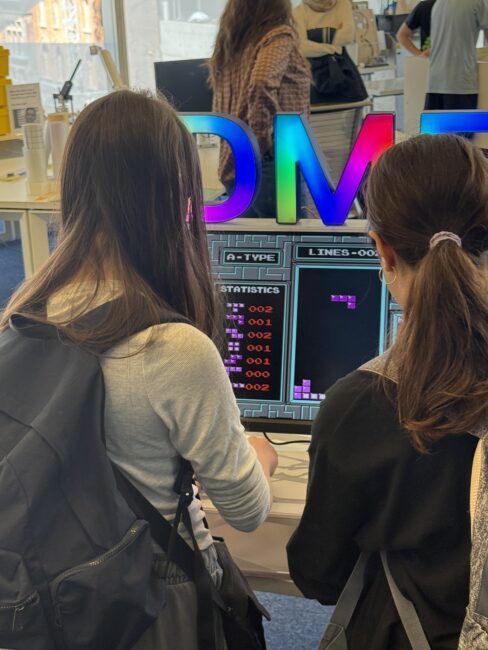
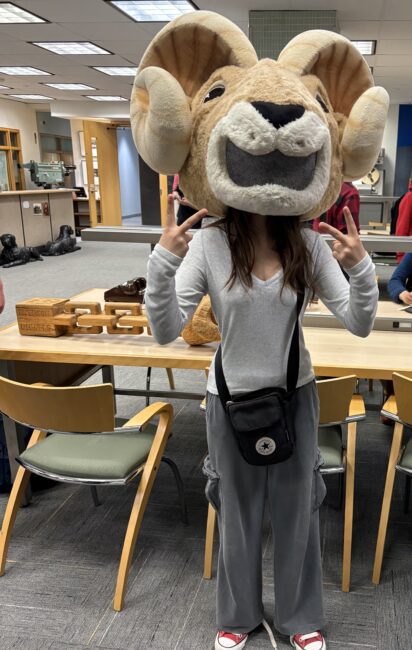


 The Toronto Metropolitan University Libraries is pleased to announce this year’s 2025 Open Educational Resources (OER) Grants, supporting the creation and adoption of openly licensed learning materials.
The Toronto Metropolitan University Libraries is pleased to announce this year’s 2025 Open Educational Resources (OER) Grants, supporting the creation and adoption of openly licensed learning materials.